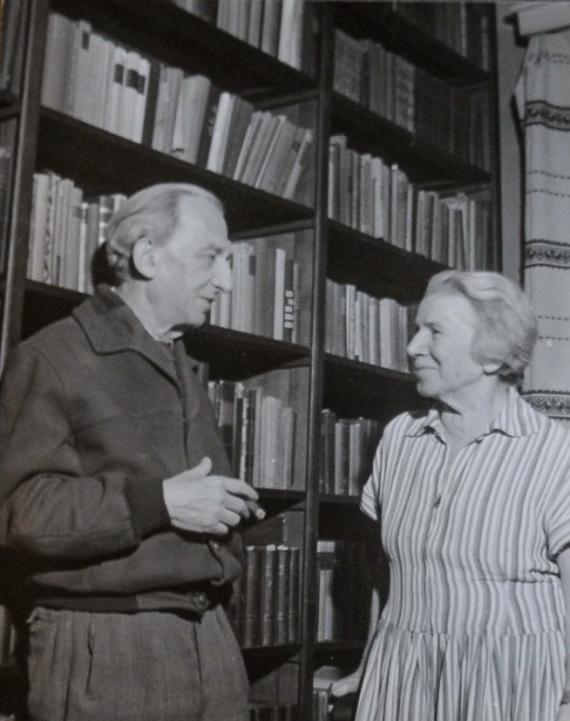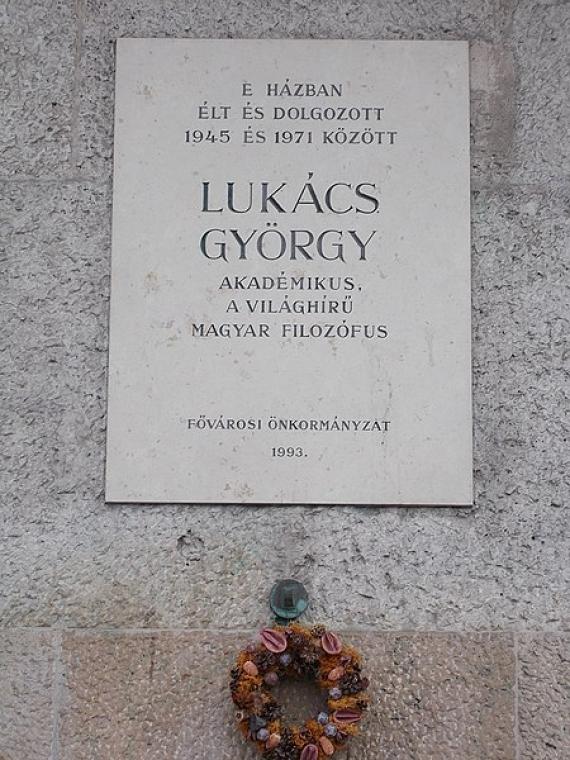Budapest
Belgrád rakpart 2
1056
Hungary
The literary scholar, Marxist philosopher and Communist Party functionary Georg Lukács lived in this place from 1945 until his death.
As early as December 1944, Georg Lukács went to Budapest, where he received a professorship in aesthetics and cultural philosophy at the University of Budapest. His students founded the so-called Budapest School - a separate current of Hungarian Marxism that had broken with real existing socialism and was committed to a "radical humanism" as an answer to Stalinism. Among them was the world-renowned philosopher Ágnes Heller.
Internationally, Lukács also became known for his writings on the emergence of fascism from 19th century German philosophy. Especially in the GDR, "[Lukács's] writings [...] advanced to become a kind of manual for the proto-fascist contamination of German intellectual history," thus influencing the reception of some texts and authors*. One of these texts is "Die Zerstörung der Vernunft" (GDR: 1954, FRG: 1962), in which he criticized Nietzsche. It was received very differently by readers. In it, Lukács dealt with the emergence of fascism from 19th-century German philosophy and accused it of "irrationalism," which inevitably led to National Socialism.
In the years 1949 to 1955, Lukács was a member of the Hungarian Parliament and became politically active in the 1956 Hungarian Uprising. As a member of the CPU from 1953, he supported the reform communist government led by Imre Nagy, who advocated "national and human socialism" and thus met with suspicion from the leadership of the Soviet Union and politicians* close to the USSR. When Nagy was removed from the post of prime minister by the leadership of the Communist Party (MDP), inner-party resistance arose in the form of the "Petöfi Circle," which first met in March 1956. In the summer, Lukács led the Petöfi Circle's debate on philosophy. The Petöfi Circle was a heterogeneous discussion forum that became "the most important intellectual stimulus for political change in Hungary." It "contributed significantly to the establishment of a political climate of awakening and change in Hungarian society," sums up historian Sabine Schön.
In the fall of 1956, Georg Lukács became part of the Central Committee and eventually Minister of National Education under Nagy's government. But when the latter declared that Hungary was leaving the Warsaw Pact, Lukács sided with the Soviet Union and left the government in protest. In October 1956, the initial student protests in Budapest turned into a nationwide uprising. In this, the totalitarian ruling Communist Party demanded a resumption of the reform course. But the Soviet Union intervened and crushed the protests.


Add new comment